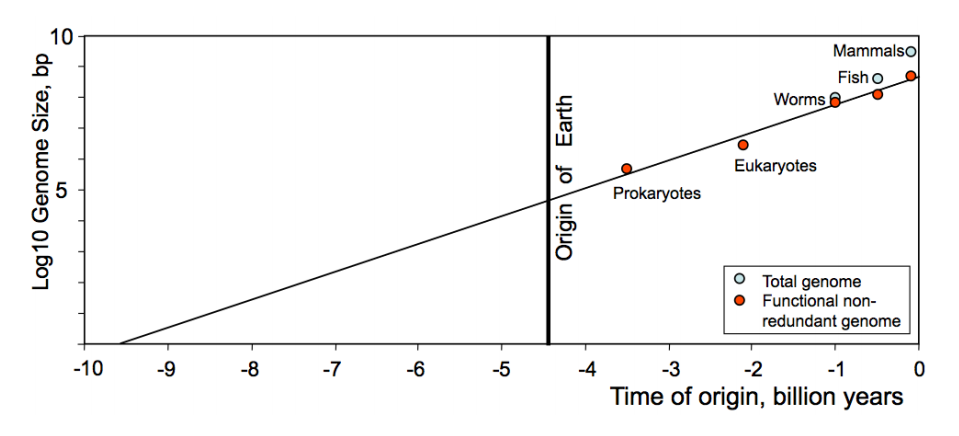Recent research from Cornell University hypothesizes that life in the universe may have originated 9.5 Billion years ago. The authors, Alexei A. Sharov and Richard Gordon do this by looking at trends on Earth and using a linear regression against the Log of the Genome size – a measure of complexity. See the chart below.

This has several implications.
First, with a universe only 13.7 billion years old and suffering from an initial violent epoch dominated by QSOs, this observation means that life initiated at the first available opportunity – just 4 billion years after the inception of the universe. As the solar system does not demonstrate any advantages over numerous other alternatives, it is likely that life originated across the universe, 10 billion years ago.
Second, the only known life progression has taken nearly 10 billion years to reach a level of complexity that aids interstellar communication capabilities. If this relationship holds in the universe, then the complexity of life everywhere may be approximately the same as what is found on Earth. Current capabilities of humans to communicate thru interstellar space are primitive. With similar expected capabilities elsewhere, the chance of a contact is close to zero. Further, current theory allows a very limited window of space-time for possible communications and that further constraints this possibility.
Finally, this observation makes it clear that life arrived in the solar system from outside – perhaps just 4.5 billion years ago. The visitors already harbored sufficient genetic complexity and spread highly successfully. What is not known, however, is whether the progression could have been different given different conditions.
Extra-terrestrial life has been a fascination for humans from the beginning. It appears that the effort expended in this direction is a waste of time. Humans may be better off focusing on how to protect the Earth and borrow sufficient time to evolve into something, bit more interesting.